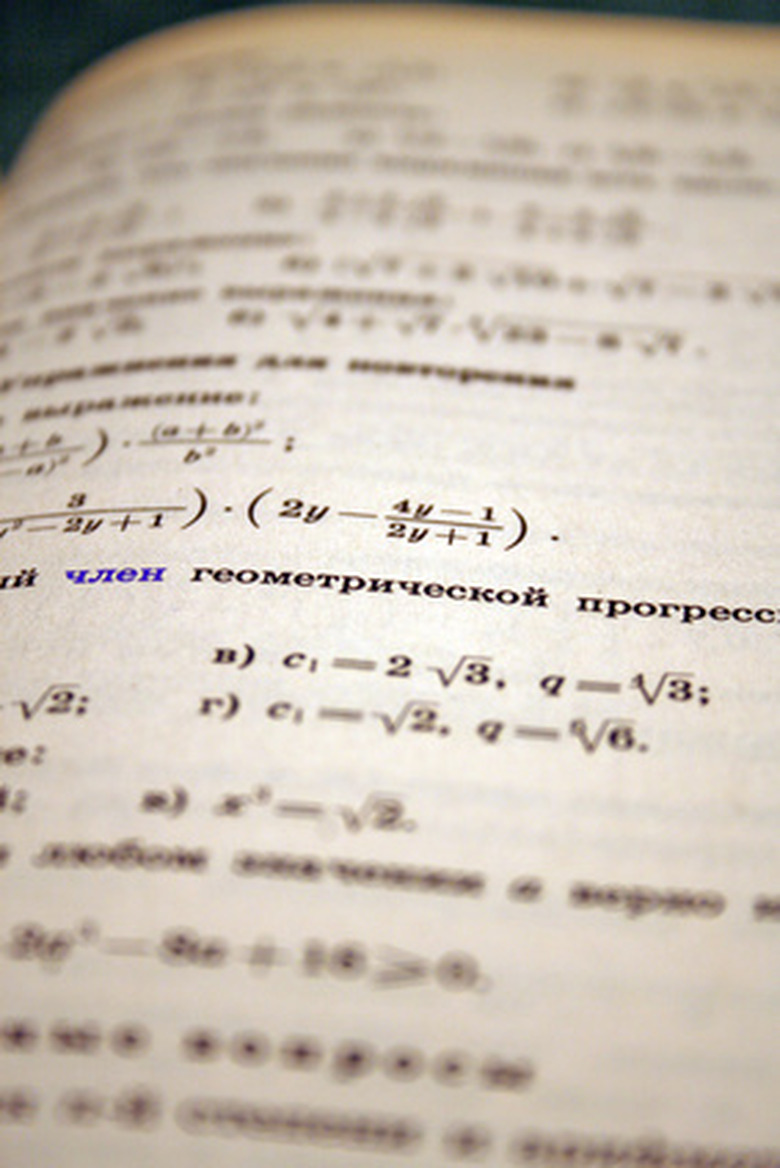Algebra 1 Substitution Method
The substitution method, commonly introduced to Algebra I students, is a method for solving simultaneous equations. This means the equations have the same variables and, when solved, the variables have the same values. The method is the foundation for Gauss elimination in linear algebra, which is used to solve larger systems of equations with more variables.
Problem Setup
Problem Setup
You can make things a little easier by setting the problem up properly. Rewrite the equations so all the variables are on the left side and the solutions are on the right. Then write the equations, one above the other, so the variables line up in columns. For example:
x + y = 10 -3x + 2y = 5
In the first equation, 1 is an implied coefficient for both x and y and 10 is the constant in the equation. In the second equation, -3 and 2 are the x and y coefficients, respectively, and 5 is the constant in the equation.
Solve an Equation
Solve an Equation
Choose an equation to solve and which variable you will solve for. Choose one that will require the least amount of calculation or, if possible, will not have a rational coefficient, or fraction. In this example, if you solve the second equation for y, then the x-coefficient will be 3/2 and the constant will be 5/2—both rational numbers—making the math a little more difficult and creating greater chance for error. If you solve the first equation for x, however, you end up with x = 10 – y. The equations will not always be that easy, but try to find the easiest path for solving the problem right from the very beginning.
Substitution
Substitution
Since you solved the equation for a variable, x = 10 – y, you can now substitute it into the other equation. Then you will have an equation with a single variable, which you should simplify and solve. In this case:
-3(10 – y) + 2y = 5 -30 + 3y + 2y = 5 5y = 35 y = 7
Now that you have a value for y, you can substitute it back into the first equation and determine x:
x = 10 – 7 x = 3
Verification
Verification
Always double check your answers by plugging them back into the original equations and verifying the equality.
3 + 7 = 10 10 = 10
-3_3 + 2_7 = 5 -9 + 14 = 5 5 = 5
References
- Linear Algebra and its Applications; Gilbert Strang; 1988
- HelpAlgebra.com; Substitution Method
Cite This Article
MLA
McKenzie, Grant D.. "Algebra 1 Substitution Method" sciencing.com, https://www.sciencing.com/algebra-substitution-method-5494682/. 24 April 2017.
APA
McKenzie, Grant D.. (2017, April 24). Algebra 1 Substitution Method. sciencing.com. Retrieved from https://www.sciencing.com/algebra-substitution-method-5494682/
Chicago
McKenzie, Grant D.. Algebra 1 Substitution Method last modified March 24, 2022. https://www.sciencing.com/algebra-substitution-method-5494682/
